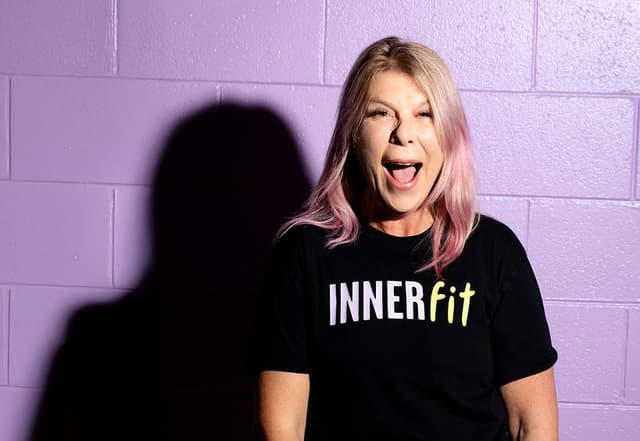
"Mindful Recovery" Is Your Everyday Superpower
- /
- Blog
- /
- "Mindful Recovery" Is Your Everyday Superpower
Published on 14th of November, 2024
In a world that seems to pull us in a million directions, it’s easy to feel like we’re constantly on autopilot. We move from task to task, reacting instead of truly engaging. Mindfulness is like a superpower because it gives you an incredible tool: control over where your mind goes, even when the world around you is chaotic. Instead of feeling tossed around by stress, emotions, or whatever’s happening in your day, the practice of mindful recovery can give you the ability to pause, choose your response, and stay steady.
What is a Mindful Recovery?
Imagine being in the middle of a hectic day, and instead of spiralling, you’re able to ground yourself, keep calm, and make decisions from a place of clarity. That’s the superpower of mindfulness—it’s inner strength and peace, no matter what’s going on outside.
Think of mindfulness as a muscle that needs training. You don’t need to sit in silence for hours to get started; it’s more about little, consistent habits. Here’s how you can start:
When we think if mindfulness, we often think of yoga, breath-work and mediation.
"Mindful Recovery" is much much more than this.
Embracing Mindful Recovery isn’t about taking a break from wellness; it is wellness.
Why is it our Super Power?
Mindful Recovery allows your body and mind to reset, recharge, and grow stronger. It is the often overlooked aspect of wellness. Let's look at some of the benefits and what you may experience when you start your own mindful recovery practices and start to build your "Mindful Recovery Superpower"!
- Reduction of stress and anxiety by shifting your focus from worrying about what might happen or dwelling on what already has, to what’s actually happening right now. So much of our stress stems from future fears or past regrets. Being present in the moment keeps you grounded, which can reduce anxiety, lower cortisol levels and bring more calm to your day.
- Improved physical health, better sleep, easing of chronic pain and inflammation, lower blood pressure, reduction of risk for chronic disease.
- Prevents Burnout, taking time for recovery keeps burnout at bay, making it possible to keep showing up, day after day.
- Improvement in your focus and concentration. When you’re fully present, you perform better. Think of mindfulness as mental blinders; it helps you tune out distractions and focus deeply, so you’re no longer juggling a thousand competing thoughts.
- Supports physical repair and growth of muscle. Muscles repair, making you stronger and more resilient. It’s just as important as your workouts.
- Enhancement of emotional resilience. Mentally and emotionally, recovery gives you the resilience to handle stress, making it easier to bounce back from challenges.
- Boosts Emotional Regulation. Can allow you to observe your emotions instead of being swept away by them. It teaches you to pause and respond thoughtfully instead of reacting impulsively. This simple shift can improve decision-making, it can help you cultivate a calmer, more centered outlook.
How to build your own "superpower" and start your "Mindful Recovery" daily practice today:
- Hot/cold therapy: Ice plunge baths and hot magnesium baths, float therapy, saunas, steam room. Combining some time in all of these areas is one of the best and most effective forms of muscle and mind recovery.
- Compression therapy all can relieve muscle tension and prevent injury, even foam rolling and massages
- Yoga: Strengthens your body, enhances flexibility, and fosters a sense of calm. Try a gentle Hatha Yoga or restorative practices such as Yin Yoga, each offers unique benefits for mental and physical well-being.
- Pilates: Both Reformer & Mat Pilates strengthen your core muscles, improves posture, and increases body awareness, it is low-impact but effective, combining breath control and stability for a mindful approach to movement.
- Breath-work: Activates the body’s relaxation response, promoting calm and mental clarity. Practices like box breathing or alternate nostril breathing reduce stress and build resilience.
- Sound Healing: Deep relaxation and tension release. Expect resonant sounds like gongs and bowls that guide you into a meditative, restorative state.
- Sleep: Prioritize quality sleep. Set a bedtime routine, reduce screen time before bed, and wind down with gentle stretching to support deep, restorative sleep.
- Nutrition: The mind gut connection is hugely underestimated. Wholefoods, reduced sugar and processed foods, cutting back alcohol, increased protein, water intake etc all have proven benefits to our mental health, our anxiety, energy levels and our ability to focus.
- Stretch and Improve Mobility: A few minutes of stretching throughout the day can improve flexibility, reduce soreness, and increase body awareness.
- Take a little YOU time: Take some time to yourself. Do something chill, something fun. Something that takes your mind away form your daily grind. This can be anything that works for you. A walk, a nap, read a book, a podcast, listen to music. Just anything that clears your head.
"Mindful Recovery" isn’t about “doing less”—it’s about taking care of yourself so you can keep progressing with your health and wellness journey.
In a fast-paced world, mindfulness is a powerful way to slow down, tune in, and reconnect with yourself. Choose what fits your life. Maybe a combination of recovery techniques! Align your routine with your needs.
Stay Curious, mindfulness is a journey, not a finish line. Experiment with different mindful recovery techniques. See what resonates most with you.
When you’re mindful, you’re not just getting through life; you’re fully living it, one intentional moment at a time. Start your "Mindful Recovery"practices today and start to build your "Super Power"!

Simone: Manager, Nutrition Coach
I spent decades in the grip of eating disorders — they shaped how I ate, felt, and saw myself. That began to change in my mid-40s when an autoimmune diagnosis forced me to confront not just my health, but my patterns, beliefs, and buried pain.
With support and honesty, I began to heal. I discovered how deeply connected everything is: food, gut health, hormones, emotions, and self-talk. Real health isn’t about restriction or shame — it’s about awareness, education, growth, and compassion.
Now, I write to share what I’ve learned — not just for women (though that’s who I know best), but for anyone ready to grow, heal, and take back ownership of their life.
